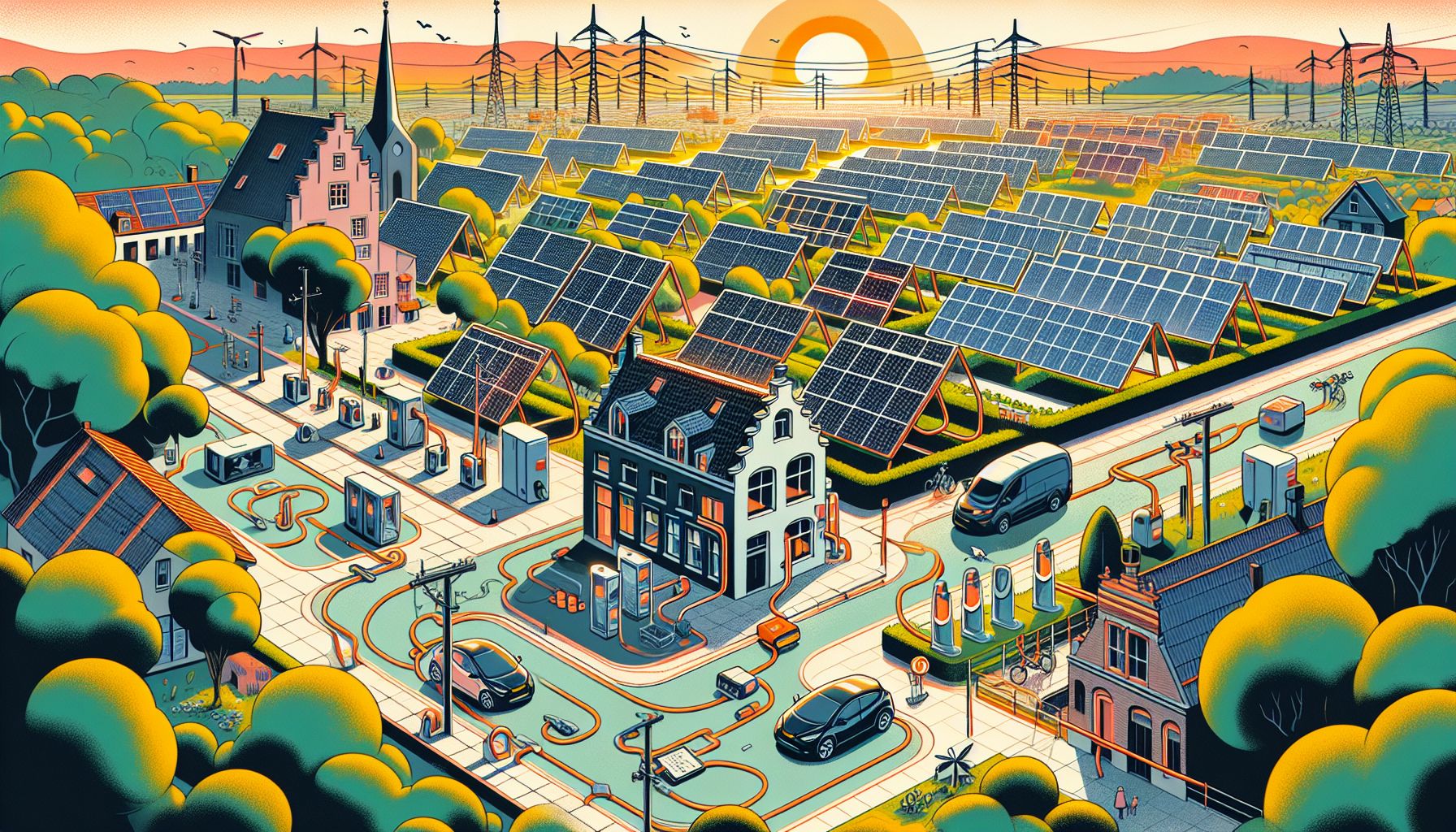Smart Grid Tech Tackles Power Network Congestion in Dutch Trial

Amsterdam, Thursday, 12 September 2024.
Liander and Zonneplan are testing smart control of solar panels, home batteries, and charging stations to alleviate grid congestion in Arnhem. This innovative approach aims to balance electricity supply and demand, addressing the mismatch between peak solar production and evening consumption peaks. The trial, running from September to November 2024, could pave the way for more efficient renewable energy integration across the Netherlands.
The Challenge of Grid Congestion
As renewable energy sources become more prevalent, grid operators face increasing challenges in balancing supply and demand. In the Netherlands, the influx of solar energy has led to periods of grid congestion, particularly during sunny afternoons when solar production peaks. This surplus of energy contrasts sharply with peak demand periods in the evening, creating a critical need for effective energy management solutions.
Innovative Solution with Smart Grid Technology
Enter the practical test being conducted by energy company Zonneplan and grid operator Liander in Arnhem. From September to November 2024, these companies are leveraging smart grid technology to automatically control the output of solar panels, home batteries, and electric vehicle charging stations. This initiative focuses on dynamically adjusting energy production and storage to match real-time demand, thereby alleviating pressure on the power network.
How the System Works
The core of this system is Zonneplan’s Powerplay platform, which manages the energy flow from solar panels and home batteries. Participating households in the Burgemeesterswijk and Hoogkamp areas of Arnhem are equipped with smart devices that communicate with the grid. These devices can automatically turn solar panels on or off and control the charging of home batteries and electric vehicles based on grid conditions. This dynamic management helps distribute energy more evenly throughout the day, reducing the risk of congestion.
Compensation and Benefits
Liander has committed to compensating households for any potential income loss resulting from this test. For example, if it turns out that keeping solar panels on during certain periods would have been more profitable for the household, Liander will make up the difference. This ensures that participants are not financially disadvantaged while contributing to a more resilient power grid. The benefits of this system extend beyond financial compensation, as it also provides a more stable and reliable power supply for all users.
The Broader Implications
This test is part of a broader effort to find scalable solutions to grid congestion issues. Similar tests are being conducted by energy company Eneco and battery brand Sessy, indicating a growing recognition of the need for innovative energy management strategies. The results of this pilot will be crucial in determining whether this approach can be rolled out to other neighborhoods and regions, potentially transforming how the Dutch power grid handles renewable energy integration.
Future Outlook
The Dutch grid faces significant upgrades that are both expensive and time-consuming. According to Alliander, ongoing congestion issues could persist for the next decade. However, initiatives like the one led by Zonneplan and Liander offer a promising alternative. By smartly managing energy production and consumption, these projects can help mitigate the immediate challenges of grid congestion while paving the way for a more sustainable energy future.

